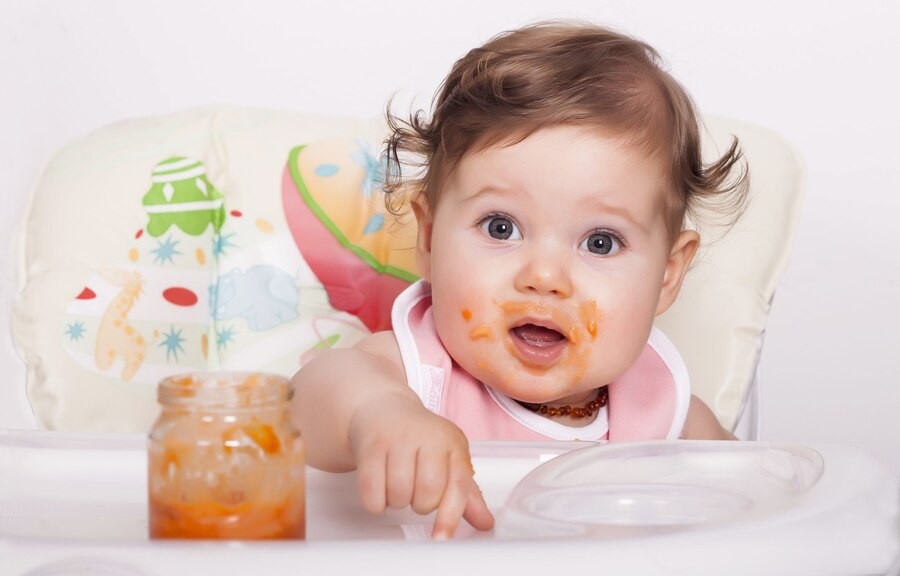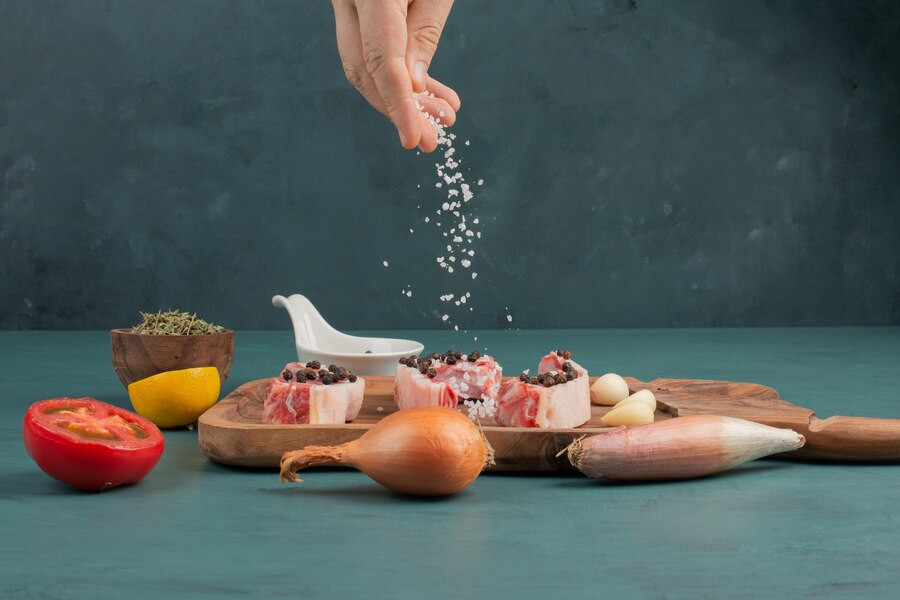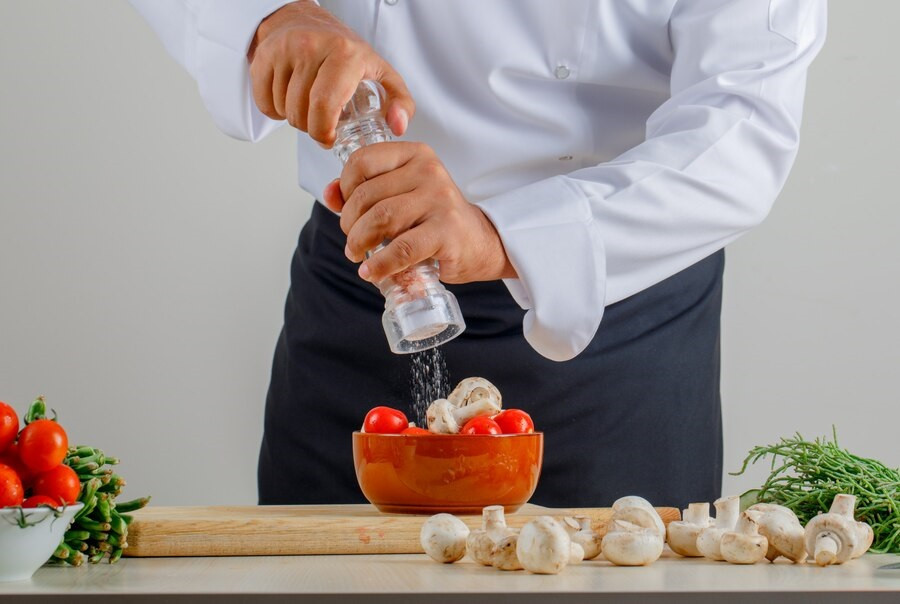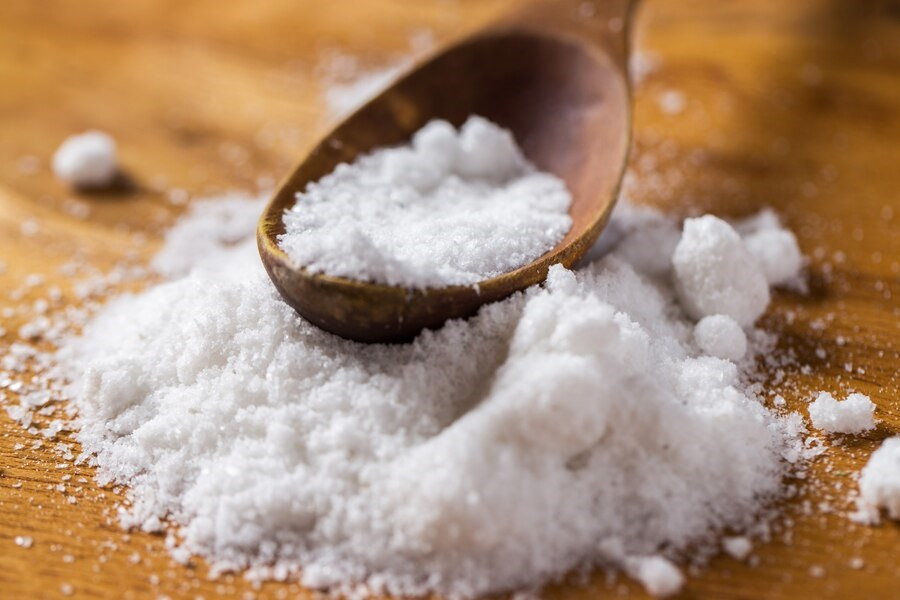It can be concerning for parents when babies keep closing their mouths when the parents try to feed them, as they may refuse to eat and keep their mouths tightly shut despite trying various types of food.
A common reaction from parents is to add salt to the infant's complementary food in the hope that it will make the food more palatable. But is adding salt the right approach to addressing this problem? Let’s dive into this topic in this article.
Understanding the Causes of Closed Mouth Movement
Closed Mouth Movement is something many infants experience, and it can be triggered by several factors, including:
- The texture of food, which may feel uncomfortable for the baby
- Teething, which often leads to pain and discomfort
- An unhealthy or unwell physical condition
- Tiredness or drowsiness
- A preference for milk or too many snacks
- A baby’s natural exploration of new foods
- Negative past experiences with food, which may cause trauma
- The development of taste preferences as babies grow older, leading to more selective eating habits
Because of these reasons, many parents consider adding salt or other spices to the complementary food to enhance the flavor. However, it’s important to carefully weigh this decision, as it could impact the baby’s health in the long run.
Is It Safe to Add Salt to Infants' Complementary Food?
According to the recommendations from the World Health Organization (WHO), infants under one year of age should not consume salt. There are several reasons why adding salt to complementary food is not advisable:
- Infants get all the salt they need from breast milk or formula. Their kidneys are still developing and are not equipped to process excess salt efficiently. Adding salt could put unnecessary strain on their kidneys.
- Excessive salt intake can raise the risk of developing high blood pressure and kidney issues later in life.
- Salt can contribute to dehydration, as too much salt forces the body to use more water to balance out the excess sodium.
- Infants who become accustomed to salty foods are more likely to crave salty foods as they grow older, which can increase the risk of obesity and heart disease.
Tips so Baby Don't Close Their Mouths Without Adding Salt to Their Food
It’s perfectly fine to prepare MPASI that’s both attractive and flavorful for babies, but it’s essential to avoid using salt. There are several healthy alternatives that can help enhance the taste of MPASI, including:
-
Natural Spices: Consider adding natural spices like cinnamon, nutmeg, or cumin. These spices not only improve flavor but are also beneficial for digestion.
-
Garlic or Shallots: Pureed garlic or shallots can give a savory taste to food without the need for added salt.
-
Vegetables: Adding a variety of vegetables to the MPASI can introduce different flavors and make the meal more appealing. Each vegetable offers a unique taste that can help keep the baby interested in food.
-
Variety of Textures and Colors: Mixing up the textures and colors of the food can make the MPASI more visually stimulating and exciting for babies. Combining ingredients can add an extra layer of interest.
-
Eating Together: Babies often imitate their parents, so eating together and showing excitement about food can make mealtimes more enjoyable and encourage the baby to eat.
If your baby’s refusal to eat is due to health issues, don’t hesitate to consult with a pediatrician. You can also use the health consultation feature on the Ai Care app, available for download on the App Store or Play Store.
Interested in learning more about pregnancy, breastfeeding, and health tips for women and children? Click here!
- dr Nadia Opmalina
Lorna Marsh (2022). Can I put salt in my baby's food?. Available from: https://www.babycentre.co.uk/x555836/can-i-put-salt-in-my-babys-food
Healthy Children (2022). Starting Solid Foods. Available from: https://www.healthychildren.org/English/ages-stages/baby/feeding-nutrition/Pages/Starting-Solid-Foods.aspx
Alina Petre, MS, RD (NL) (2021). Salt for Babies: How Much Is Safe?. Available from: https://www.healthline.com/nutrition/salt-for-babies
CDC (2023). When, What, and How to Introduce Solid Foods. Available from: https://www.cdc.gov/nutrition/infantandtoddlernutrition/foods-and-drinks/when-to-introduce-solid-foods.html
Erin Heger (2022). What to do if your baby won't eat solid food. Available from: https://www.babycenter.com/baby/solids-finger-foods/is-it-normal-that-my-baby-doesnt-like-the-texture-of-solids_3652414
Karthik Kumar, MBBS. What Should I Do if My Baby Doesn't Want to Eat?. Available from: https://www.medicinenet.com/what_should_i_do_if_my_baby_doesnt_want_to_eat/article.htm
WebMD (2024). Why Won’t Baby Eat?. Available from: https://www.webmd.com/parenting/baby/why-wont-baby-eat
Alina Petre, MS, RD (NL) (2022). What Happens If You Eat Too Much Salt?. Available from: https://www.healthline.com/nutrition/what-happens-if-you-eat-too-much-salt












